How Mondra is targeting food net zero using Microsoft Azure cloud computing
Combining predictive AI and OpenAI models, the firm aims to shine a light on hard-to-pinpoint Scope 3 emissions figures


As firms across the world aim to meet net zero targets, it’s become increasingly clear that leaders need a better understanding of the carbon footprint of their entire supply chain rather than just their immediate emissions.
Scope 3 emissions, which are currently optional to report, refer to those produced by all the entities in an organization’s supply chain. While tracking these emissions is an essential part of the private sector embracing sustainability and clamping down on carbon emissions, this is a challenge as by definition they originate from sources outside an organization’s direct control.
Mondra is an environmental product footprinting platform, which works to help food companies identify the emissions in their supply chain.
Leaning on the Microsoft Azure cloud computing platform, Mondra provides AI predictions for where emissions might be in a customer’s supply chain. In practice, this means combining AI and digital twins to make a copy of existing data from which emissions numbers can be extrapolated, using Azure Databricks.
“We set out on a thesis to prove that if you could do LCA at speed, at scale for 30,000 products – that's what you're talking about with a retailer – then you end up with a really high resolution map of how your scope 3 is made up,” says Jason Barrett, CEO at Mondra, in conversation with ITPro.
“You can target investment, you can collaborate with suppliers.”
Marco De Sanctis, CTO at Mondra, tells ITPro that identifying where in your supply chain emissions originate is one of the most important steps to reducing your company’s carbon footprint.
Get the ITPro daily newsletter
Sign up today and you will receive a free copy of our Future Focus 2025 report - the leading guidance on AI, cybersecurity and other IT challenges as per 700+ senior executives
“This is technically an incredibly challenging exercise, because the data is often incomplete and sometimes even wrong,” de Sanctis says.
These results are scored according to their estimated accuracy, so that leaders can check how Mondra’s inference approach produced the results. They can then take this data to their suppliers, to double check the accuracy and find out where emissions can actually be reduced.
To highlight the complexity of the task, Barrett tells ITPro that Mondra has paired with a leading UK retailer that had previously attempted to track its food-linked emissions internally. The retailer had been forced to stop after realizing that the task would take a century – a time that Mondra has now shortened down to just four hours.
Mondra is now working with 85% of UK retailers, representing 20% of the total footprint of the UK, but aims to go further and offer retailers more granular emissions insights.
RELATED WHITEPAPER

To achieve this it’s developed a new chatbot offering called Sherpa, a natural language layer for interfacing with Mondra data powered by OpenAI’s large language model (LLM) GPT-4o.
This is rooted in Microsoft Azure OpenAI’s servers, and individually grounded in the dataset for each customer. The cloud architecture, which provides Microsoft customers with a range of generative AI models for differing use cases, has also allowed Mondra to offer Sherpa as a multi-agent offering meaning it uses other AI models in tandem with GPT-4o.
De Sanctis tells ITPro that Mondra is in the process of integrating OpenAI’s o1 model to assist customers with ‘what if’ questions about their supply chain emissions.
Through Microsoft Azure, Mondra’s customers can also check the carbon emissions of their AI model use, which can apply to Sherpa as well as any other AI models on which they rely.
Barrett says that although Mondra only measures scope 3 in the food and beverage industry, it’s aware of the need for responsible AI use and will work to ensure its AI use doesn’t undo its environmental benefits. De Sanctis adds that this is a prime benefit of its partnership with Microsoft:
“Microsoft Azure, as a cloud platform, allows you to do this very measurement quite precisely, projected over your usage of the platform itself.
“So you can literally see reports where your carbon footprint, for the services that you're using, is presented and justified much like we do for food. And it’s amazing because it allows you to see, for example, when we optimize our code, when we improve the efficiency of our code, the benefits this is generating in terms of less CO2 being released into the environment.
“Or even being able to choose the data centers in regions which could be more carbon efficient, depending on the power sources in the given country where your services are deployed.”

Rory Bathgate is Features and Multimedia Editor at ITPro, overseeing all in-depth content and case studies. He can also be found co-hosting the ITPro Podcast with Jane McCallion, swapping a keyboard for a microphone to discuss the latest learnings with thought leaders from across the tech sector.
In his free time, Rory enjoys photography, video editing, and good science fiction. After graduating from the University of Kent with a BA in English and American Literature, Rory undertook an MA in Eighteenth-Century Studies at King’s College London. He joined ITPro in 2022 as a graduate, following four years in student journalism. You can contact Rory at rory.bathgate@futurenet.com or on LinkedIn.
-
 Cleo attack victim list grows as Hertz confirms customer data stolen
Cleo attack victim list grows as Hertz confirms customer data stolenNews Hertz has confirmed it suffered a data breach as a result of the Cleo zero-day vulnerability in late 2024, with the car rental giant warning that customer data was stolen.
By Ross Kelly
-
 Lateral moves in tech: Why leaders should support employee mobility
Lateral moves in tech: Why leaders should support employee mobilityIn-depth Encouraging staff to switch roles can have long-term benefits for skills in the tech sector
By Keri Allan
-
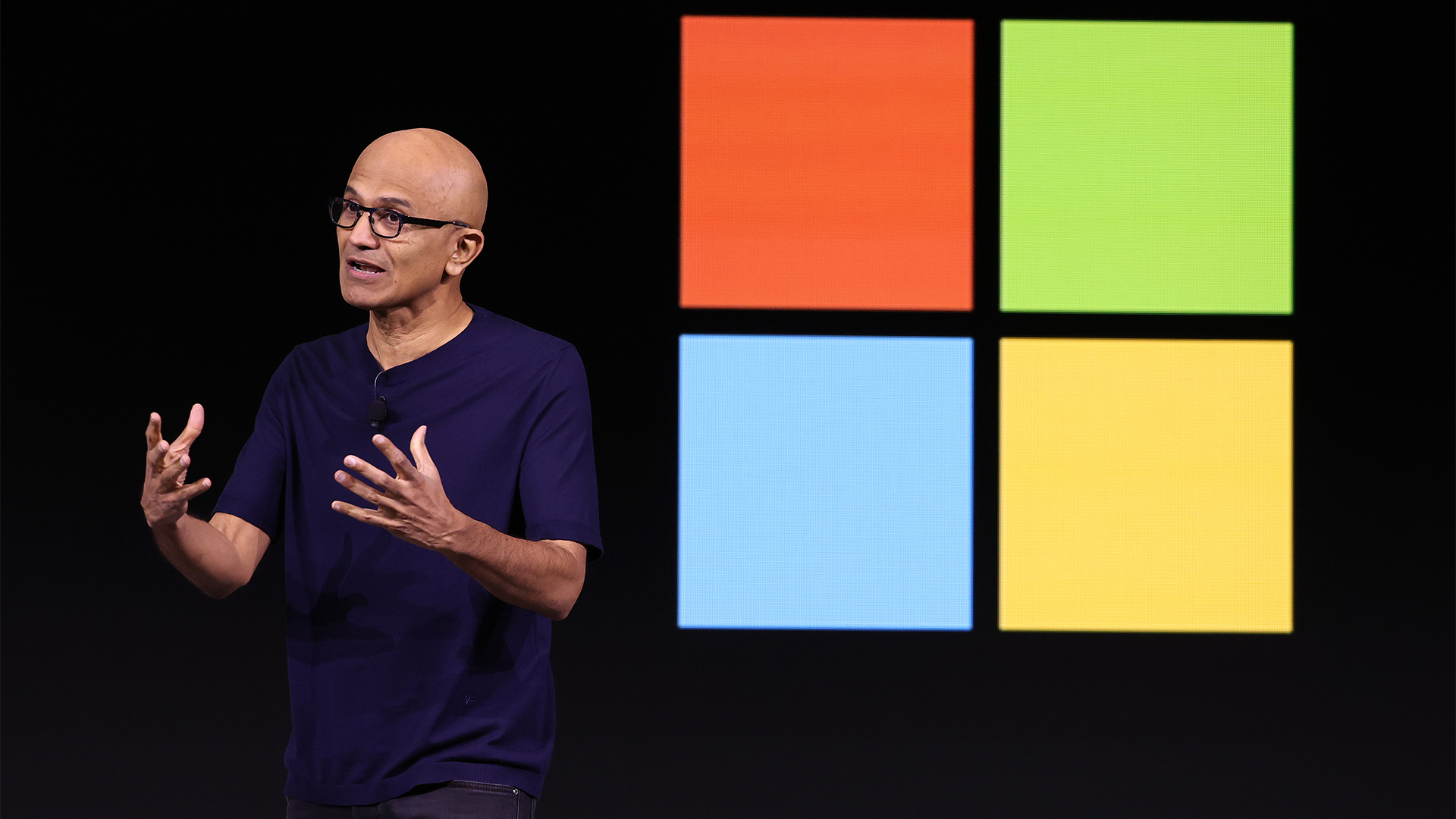 "I LOVE this company!" Looking back on 50 years of tech giant Microsoft
"I LOVE this company!" Looking back on 50 years of tech giant MicrosoftOpinion There have been highs, lows, laughs and lots of success in the past 5 decades for the Redmond-headquartered firm
By Maggie Holland
-
 The CMA just dropped its probe into the Microsoft–OpenAI deal
The CMA just dropped its probe into the Microsoft–OpenAI dealNews The CMA has dropped its probe into the partnership between Microsoft and OpenAI, saying the deal doesn't give Microsoft a controlling interest over the AI firm.
By Emma Woollacott
-
 Microsoft says there’s an AI divide brewing – here’s how enterprises can get on the right side
Microsoft says there’s an AI divide brewing – here’s how enterprises can get on the right sideNews Research from Microsoft and Goldsmiths University suggests there is a growing 'AI divide' among enterprises adopting the technology and those sluggish to react.
By George Fitzmaurice
-
 ‘Europe could do it, but it's chosen not to do it’: Eric Schmidt thinks EU regulation will stifle AI innovation – but Britain has a huge opportunity
‘Europe could do it, but it's chosen not to do it’: Eric Schmidt thinks EU regulation will stifle AI innovation – but Britain has a huge opportunityNews Former Google CEO Eric Schmidt believes EU AI regulation is hampering innovation in the region and placing enterprises at a disadvantage.
By Ross Kelly
-
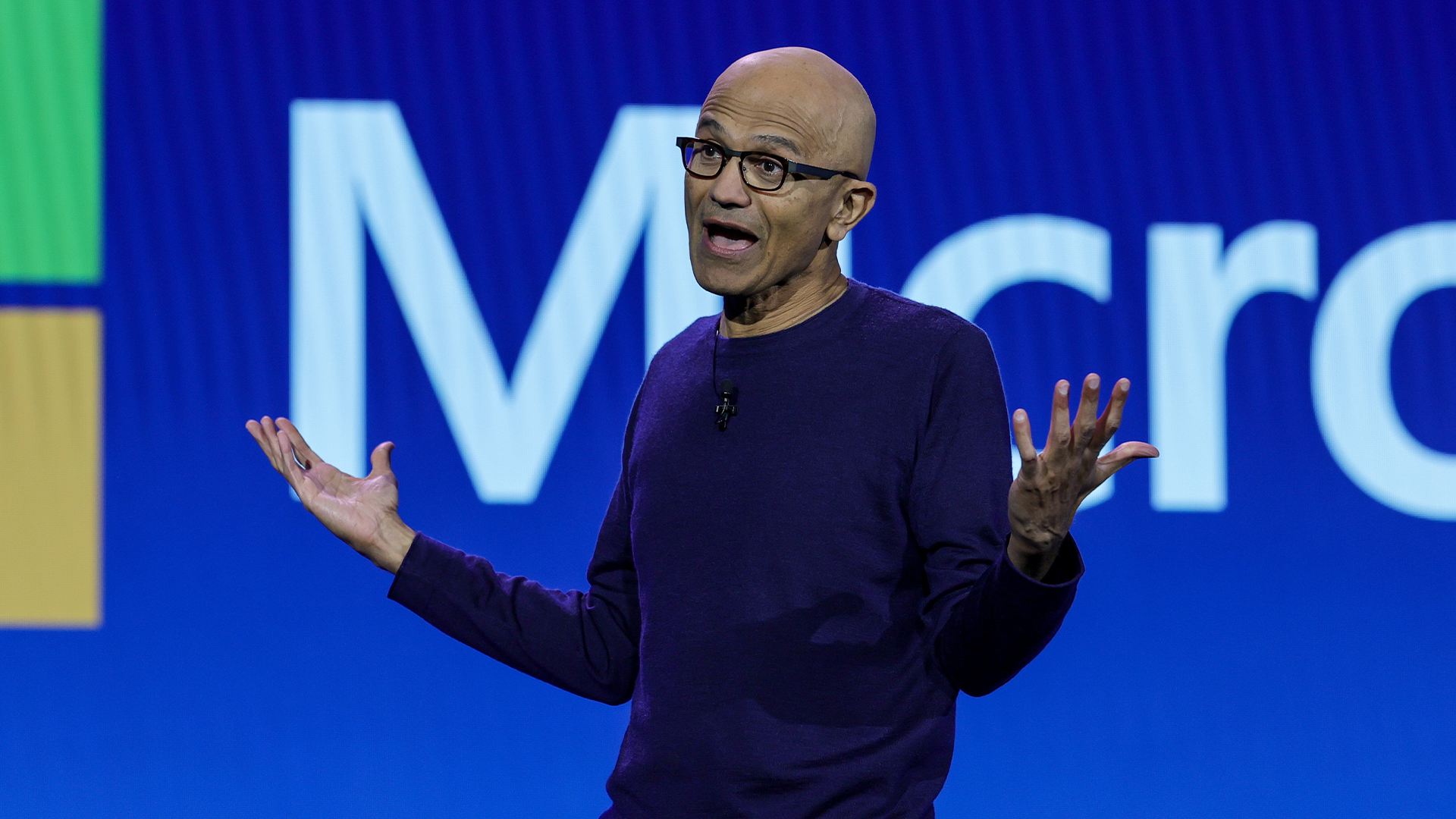 Microsoft promises more AI spending despite cloud cost stumble
Microsoft promises more AI spending despite cloud cost stumbleNews Microsoft recorded revenue and earnings growth in its latest quarterly results, but higher than expected costs in cloud and AI raised investor concerns.
By Nicole Kobie
-
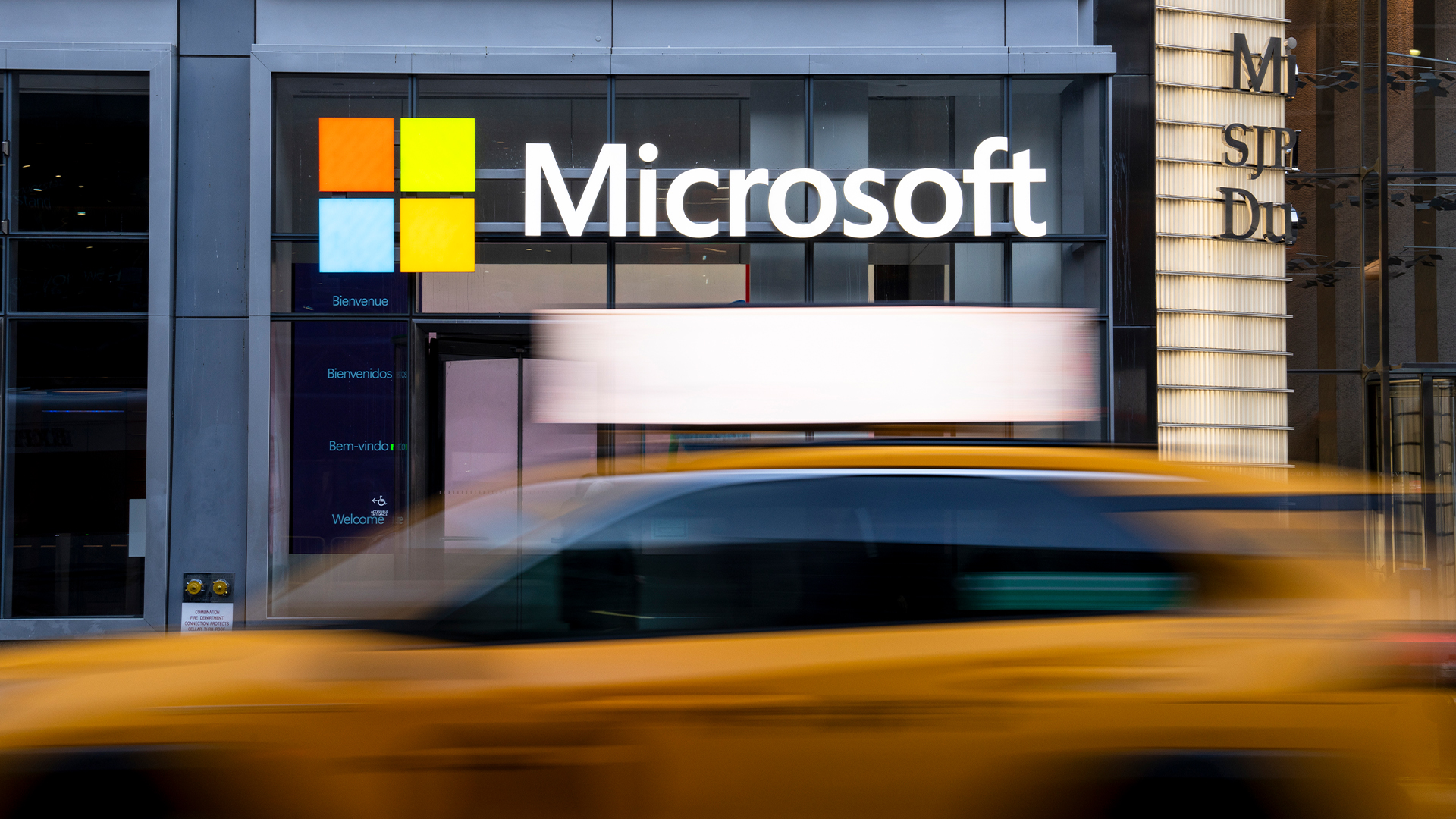 Microsoft staff face second round of layoffs as firm continues cost-cutting measures
Microsoft staff face second round of layoffs as firm continues cost-cutting measuresNews The size of the layoffs has not been specified, though Microsoft has said they will be small
By George Fitzmaurice
-
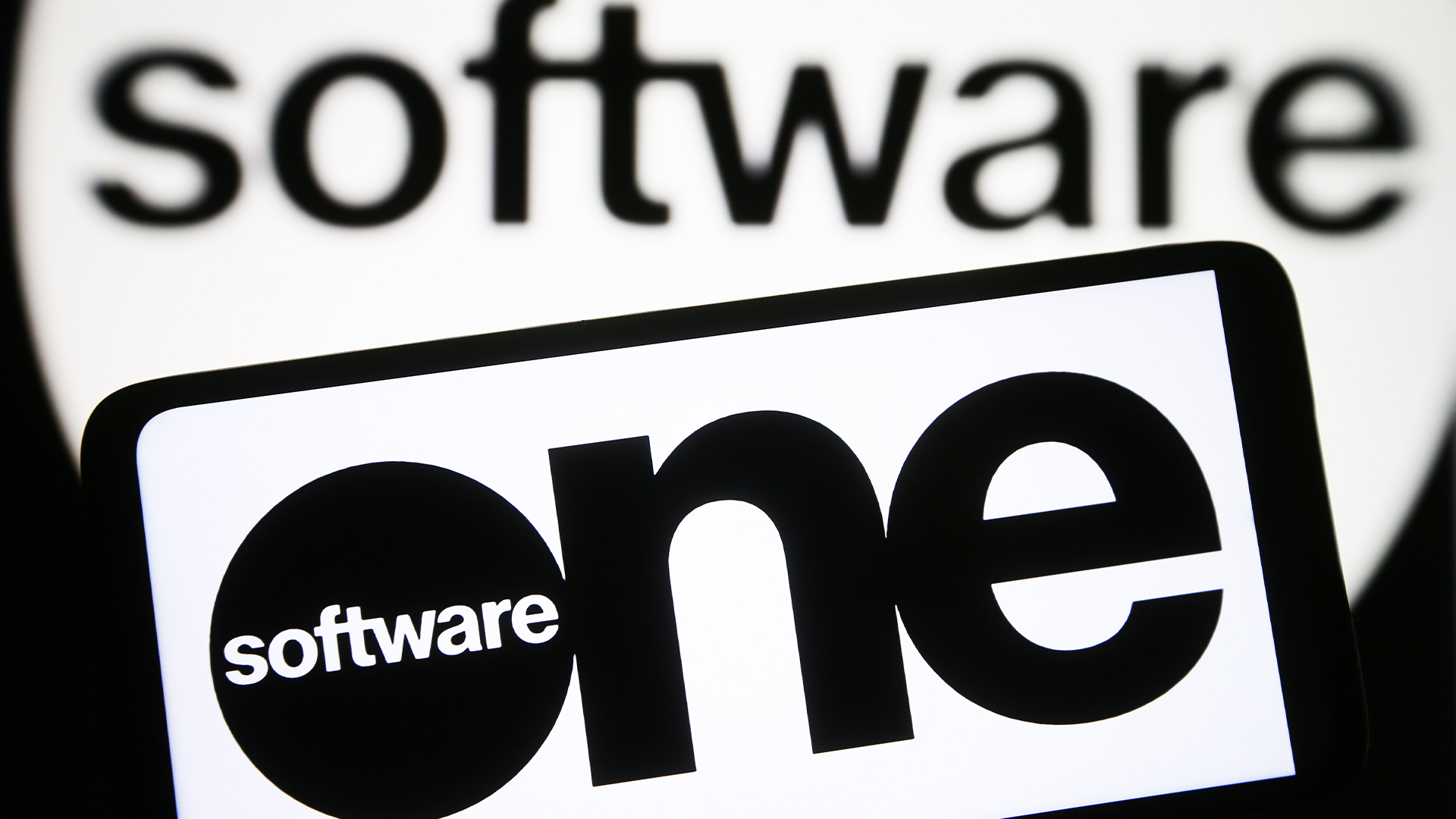 SoftwareOne to acquire Crayon in $1.4 billion merger deal
SoftwareOne to acquire Crayon in $1.4 billion merger dealNews The merged firm will be 'uniquely positioned' to capitalize on a $150 billion market
By Emma Woollacott
-
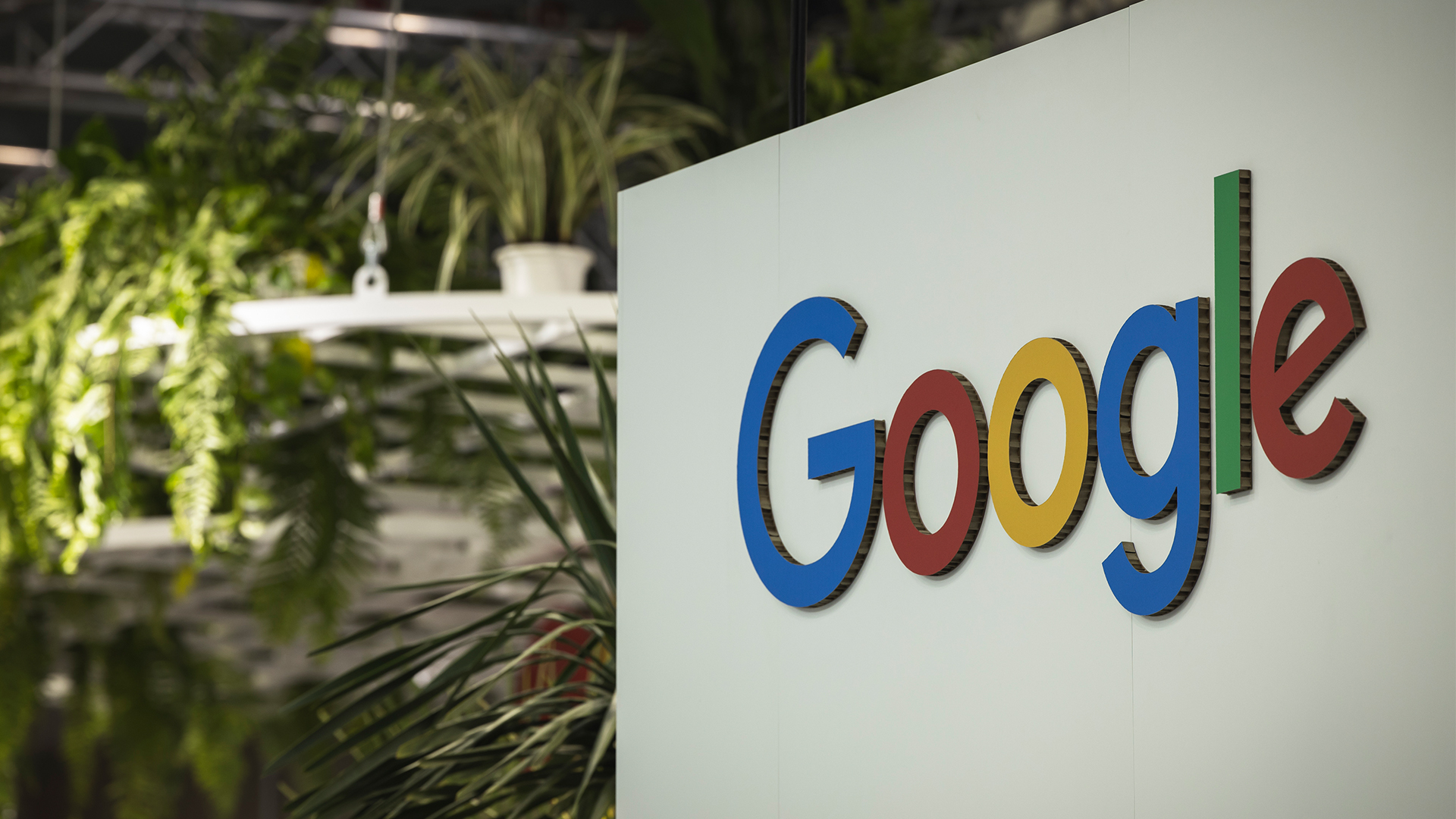 Google wants regulators to break up Microsoft's OpenAI deal
Google wants regulators to break up Microsoft's OpenAI dealNews Google has already been nipping at Microsoft’s heels in the European cloud market over competition concerns
By George Fitzmaurice